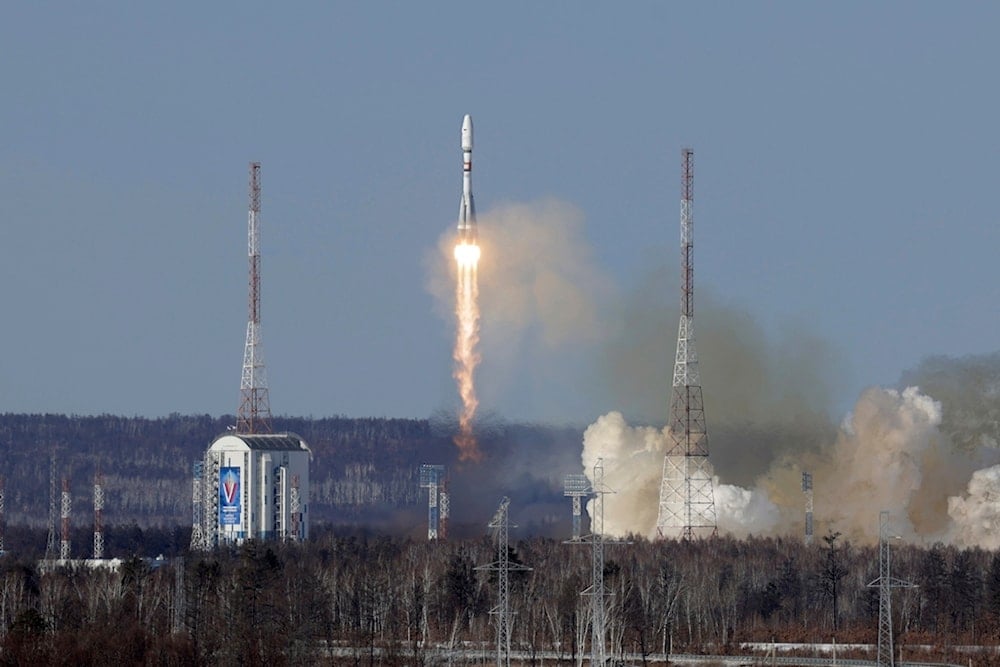Russia to launch 100+ satellites to control drones
Russia will deploy over 100 satellites to support drone control as part of its national space project, according to Roscosmos chief Dmitry Bakanov, who also unveiled plans for broadband and Earth-sensing satellites.
-

In this photo released by Roscosmos space corporation on Thursday, Feb. 29, 2024, the Soyuz-2.1b rocket blasts off at the Vostochny cosmodrome outside the city of Tsiolkovsky, Russia. (AP)
Russia will deploy more than 100 satellites to enhance control over unmanned aerial systems (UAS) as part of its expanding national space project, Roscosmos Director General Dmitry Bakanov announced on Tuesday.
“Deployment of a satellite network in the interests of controlling UAS: 102 plus one spacecraft,” Bakanov stated during a presentation of the national space initiative at the Digital Industry of Industrial Russia (CIPR) conference in Nizhny Novgorod.
In addition to the UAS-focused network, the project will launch 886 Rassvet broadband internet satellites and 114 Earth remote sensing satellites, further broadening Russia's technological capabilities in space, Bakanov added.
The CIPR conference, held from June 2 to 8 in Nizhny Novgorod, hosts representatives from 30 countries, including China, India, Cuba, Saudi Arabia, the UAE, and Belarus, marking it as a significant platform for international tech and industrial cooperation.
Russia aims for the moon
Last June, Russian First Deputy Prime Minister Denis Manturov said Russia aimed to explore new frontiers and uphold its status as a leading spacefaring nation, prioritizing the production and launch of satellites to establish orbital constellations.
"The goal is to keep up and try to reach new frontiers ... Unfortunately, we are not the first in terms of orbital constellations — in communication satellites and Earth remote sensing. We need to produce and launch them very intensively today, creating and building up these groupings," Manturov said on the sidelines of the St. Petersburg International Economic Forum (SPIEF).
The official noted the challenge of the state independently developing orbital constellations and mentioned the reliance on private sector initiatives, which they are prepared to back. He further stressed the necessity for Russia to establish its space orbital station to uphold its leadership in space exploration.

 2 Min Read
2 Min Read










